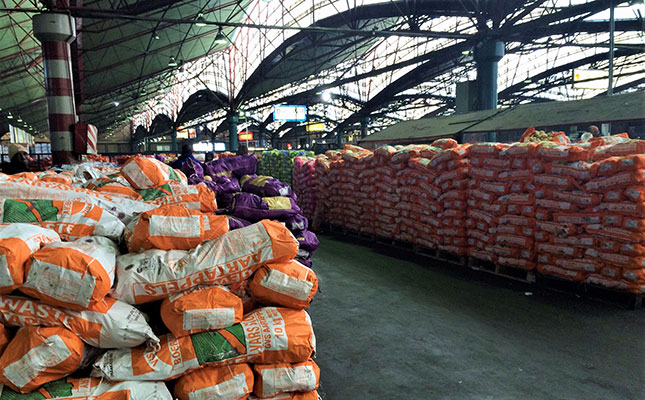
“It’s absolutely unacceptable that a municipality says it doesn’t have the money available to do the necessary maintenance,” Willie Jacobs, CEO of Potatoes South Africa, told Farmer’s Weekly.
“We remain especially concerned about the situation at the Tshwane Market, and have had several discussions with the municipality about the matter.”
READ Global market forces keep South Africa’s food prices high
Jacobs said the situation had escalated to such an extent that the organisation was advocating for the formation of a public-private partnership so that the Tshwane facility could be run on a similar basis as the Cape Town Market.
The latter, which was acquired from the City of Cape Town in 2004, was the only privatised fresh produce market in South Africa, and the first to include agents and buyers as shareholders.
According to its website, the market had a broad ownership base, with farmers and market agents having held a 26% shareholding in the business since 2007.
“[Privatising the Tshwane Market] would benefit not only the farmers, but also the municipality,” Jacobs said.
READ Farmers’ markets: much more than sales outlets
“It would reduce the legal risks and ensure a consistent rental income for the municipality. It would also solve the market’s current cash flow problems.”
Francois Knowles, registrar of the Agricultural Produce Agents Council, said it was more a question of lacking political will than a financial issue.
“It doesn’t cost money to pick up rubbish. The Tshwane Market needs to look at basic issues such as cleanliness and security.”
Knowles added that proper attention was not paid to this issue as people did not truly understand the role that farmers, market agents and hawkers played in the food distribution value chain.
Prof André Jooste, agricultural economist at Stellenbosch University and member of the National Agricultural Marketing Council, said fresh produce markets had “been a problem for years”.
“There are many models that could be followed as alternatives to the current system, of which privatisation is one,” he said. “The Joburg Market [for example] works, because it functions as a separate municipal entity with its own board.”
Jooste said one of the most significant challenges faced by the Tshwane Market was the fact that it formed part of a larger municipal division.
“The same can be said for several other smaller municipal markets across the country.”












